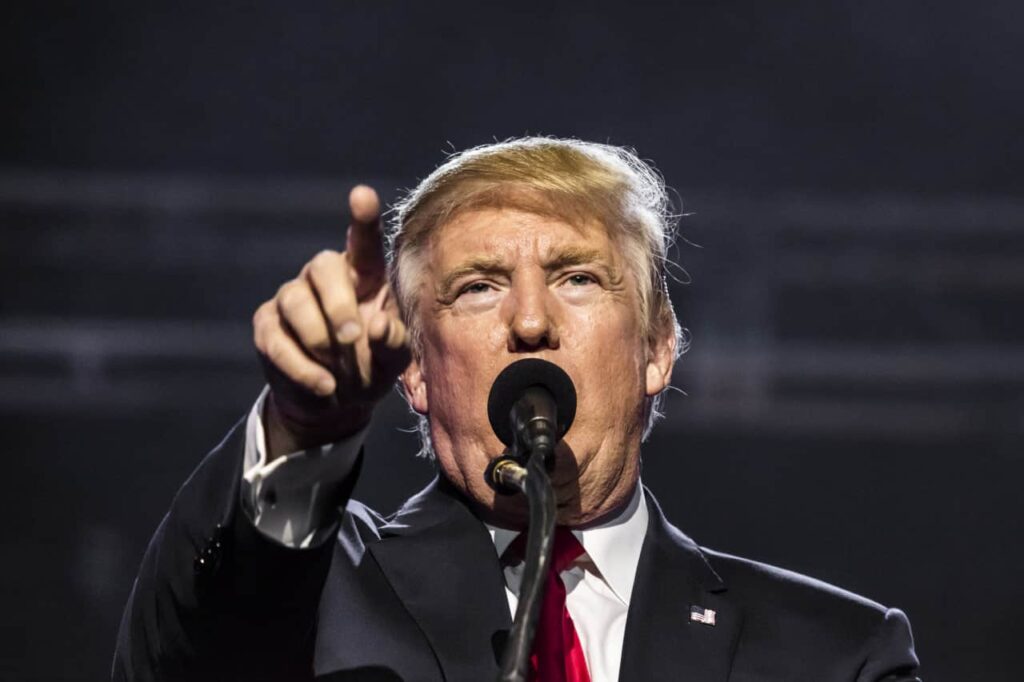President Donald Trump’s tariff policy has served as a center of gravity for national and international policy since before he officially took office.
On the one hand, their steady yet frequently erratic implementation has already damaged the U.S. diplomatic standing, while fears of long-term economic fallout have triggered several recession-like stock and cryptocurrency market crashes.
In an interview filmed ahead of the Liberation Day announcement and published late on April 3, Michael Pettis, a professor of finance at Peking University, revealed that the new levies and dues on international trade will, ultimately, prove inconsequential in terms of the stated goal of the ongoing trade war: addressing America’s vast and chronic trade deficit.
They’re sort of addressing it on a piecemeal basis, on a bilateral basis, and trade can only be resolved systemically… I think it’s going to be disruptive, but I don’t think it’s going to have the impact that many people think.
Why Trump’s tariffs won’t remove America’s trading deficit
To begin with, Pettis explained that the current implementation is unlikely to have a noteworthy effect other than creating turmoil as the tariffs have, so far, been rather erratic.
Indeed, the somewhat strange selection of countries, regions, and percentages in the Liberation Day announcement has sparked much speculation about the decision-making process. Some even suggest that the list might have been made by an artificial intelligence (AI) model and based on internet domains.
Some of the primary evidence backing such a notion is the inclusion of islands with internet domains but with no inhabitants other than penguins, such as the Heard and McDonald Islands, and the separation of tariffs on EU countries like France and their overseas territories, such as the island of Reunion.
Along with being seemingly erratic, Pettis stated the tariffs are unlikely to achieve their stated goals as they are, despite the panic and controversy, relatively ineffective tools.
Could Trump tariffs fundamentally change global trade?
The professor explained that numerous additional factors determine whether a country will have a trade deficit or a trade surplus, with the national choice about whether to implement policy more beneficial to the supply or to the demand side of the equation being one of the key factors.
Likewise, rising trading tensions could either have little meaningful impact or break the global economic setup, as nations like China or South Korea do not have a surplus with the U.S. due to factors such as tariffs but because they produce more goods than their domestic markets can absorb.
The problems are the surplus countries: China, South Korea, Germany and so on. So surplus countries have real difficulty retaliating because, remember, they’re not running surpluses because they’re in a strong position; they’re running surpluses because they have such weak domestic demand that they need foreign demand to resolve their problem of excess production.
Indeed, until the fundamental causes are addressed, such nations will continue needing countries to absorb the products by running a trade deficit. The sheer scale of the U.S. economy makes it the prime candidate, with or without additional dues on foreign goods.
The key role the U.S. plays in the global imbalances is that it’s ultimately the absorber of last resort of excess savings, which is another way of saying it’s the global consumer of last resort. That’s the role that it plays, and nobody else wants to play that role. So, if the U.S. backs out of the role, we’re going to see major changes in the global trading system. It’s not simply going to be the same trading system with a slightly different set of players.
Is President Trump waging a class war?
Assuming that suppliers do not give in to American companies’ demands to help absorb the tariffs, surplus countries will likely experience a trade impact far lower than the trade war controversy would indicate, with the majority of the hardship being handled by the consumers in the U.S.
Interestingly, Pettis referred to his 2021 book ‘Trade Wars Are Class Wars,’ arguing that, rather than trading conflicts between countries, trade wars are fights between different sections within a single economy, within which the workers are almost always the losers.
The professor used the early 2000s and Germany’s growing surplus against nations like Spain, as well as the fact that in both countries, the rising dynamic depressed wages, as the showcase for the notion that employers tend to benefit and employees suffer.
The assessment, though not explicitly mentioned by Pettis, is in line with the idea that President Donald Trump’s tariff policy is intended to eliminate the income tax eventually.
Are tariffs just a different type of tax?
Some critics, particularly from the economic left, oppose such a policy as tariffs would – once again, unless suppliers agree to take on the costs – effectively amount to regressive taxation, as they have an oversized effect on lower-income individuals.
The notion that Trump’s policies benefit the rich isn’t especially surprising, as his other tax cuts are known to lower the levies upon the wealthy and to have arisen from the old and controversial notion of the ‘trickle-down economy’ – the theory that the very wealthy would reinvest their assets in meaningful ways rather than hoarding or offshoring them if spared progressive taxation.
Interestingly, Pettis does touch upon one of the effects of such policies and positions it as one of the causes of America’s trading deficit: the three-decade trend of wages growing far slower than productivity.
The idea that rising wages are bad is simply not true. Rising wages are the whole point of economic development. What we want is for our wages to go up – we just want to make sure that our productivity goes up at the same pace, and what’s happened in the last 30 years in the United States is that productivity has risen faster than wages. We need to close that gap.
Why the tariffs may not doom the U.S. economy
Lastly, Professor Pettis offered some silver lining. Harkening back to his Foreign Affairs article from late 2024, he explained that the pessimistic comparisons between the tariff increases in the 1930s and 2025 are misplaced, as the U.S. switched from having the biggest trade surplus in the world to having the largest deficit.
Traditional wisdom dictates that surplus countries cannot ‘win’ trade wars.









